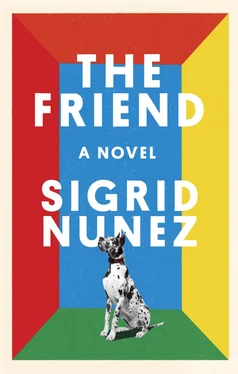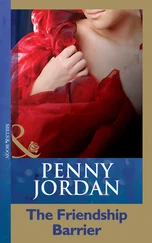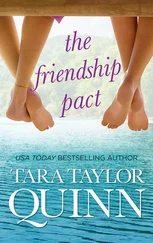It was not her fault that your marriage entailed adjustments to your friendships, that is what marriages do. You and I were closest when you were between wives, periods that never lasted long, because you were, to an almost pathological degree, incapable of being alone. You once told me that, with few exceptions, such as when you were traveling on business, on book tour for example (and not always even then), you hadn’t slept a night alone in forty years. Between wives, there was always some girlfriend. Between girlfriends there were one-night stands. (There were also what you liked to call drive-bys, but those did not involve sleep.)
A pause here to confess, not without shame: I never heard the news that you’d fallen in love without experiencing a pang, nor could I suppress a surge of joy each time I heard that you were breaking up with someone.
I don’t want to talk about you, or to hear others talk about you. It’s a cliché, of course: we talk about the dead in order to remember them, in order to keep them, in the only way we can, alive. But I have found that the more people say about you, for example those who spoke at the memorial—people who loved you, people who knew you well, people who are very good with words—the further you seem to slip away, the more like a hologram you become.
• • •
I am relieved that at least I am not invited to your house. (It is still your house .) Not that I have any particularly strong associations with the place, having been there only two or three times in the several years that it was your home. I do remember well my first visit, not long after you’d moved in, when I got a tour of the brownstone, admiring its built-in bookcases and handsome rugs laid over aged walnut floors, and being reminded how essentially bourgeois contemporary writers are. Once, over a superb dinner at another writer’s house, someone brought up Flaubert’s famous rule about living like a bourgeois and thinking like a demigod, though I’ve never seen how that wild man’s own life could be said much to resemble that of any ordinary bourgeois. Nowadays (the table agreed) the feckless bohemian had all but ceased to exist, replaced by the hipster known for his knowingness, his consumer savvy, his palate and other cultivated tastes. And fair or not, asserted our host, opening a third bottle of wine, many writers today admitted to feelings of embarrassment and even shame about what they do.
You who had moved there decades before the boom were disheartened to see Brooklyn become a brand and wondered at the fact that your own neighborhood had become as hard to write about as it was to write about the sixties counterculture: no matter how earnest one set out to be, the ink of parody seeped through.
As famous as Flaubert’s words are Virginia Woolf’s: One cannot think well, love well, sleep well, if one has not dined well. Point taken. But the starving artist wasn’t always a myth, and how many thinkers have lived like paupers, or gone to paupers’ graves.
Woolf names Flaubert with Keats as men of genius who suffered fiercely because of the world’s indifference to them. But what do you suppose Flaubert would have made of her—he who said all female artists are sluts? Both created characters who take their own lives, as would Woolf herself.
• • •
There was a time—quite a long time, it was—when you and I saw each other almost every day. But in the past few years we might have been living in different countries instead of only different boroughs, staying in touch regularly but mainly through email. In all of last year we met more often by chance, at a party or a reading or some other event, than by plan.
So why am I so afraid to set foot in your house?
It would undo me, I think, to glimpse some familiar piece of clothing, or a certain book or photograph, or to catch a hint of your smell. And I don’t want to be undone like that, oh my God, not with your widow standing by.
• • •
Are you writing a book? Are you writing a book? Click here to learn how to get published.
Lately, since I started writing this, a new message has been popping up.
Alone? Scared? Depressed? Call 24 Hour Suicide Hotline.
• • •
The only animal that commits suicide is also the only animal that weeps. Though I’ve heard that stags brought to bay, exhausted from the hunt, with no escape from the hounds, sometimes shed tears. Crying elephants have also been reported, and of course people will tell you anything about their cats and dogs.
According to scientists, animal tears are tears of stress, not to be confused with those of an emotional human being.
In humans, the chemical makeup of emotional tears is different from that of tears that form in order to cleanse or lubricate the eye, say because of some irritant. It is known that the release of these chemicals can be beneficial to the weeper, which helps explain why people so often find that they feel better after they’ve had a good cry, and also, perhaps, the reason for the enduring popularity of the tearjerker.
Laurence Olivier was said to have been frustrated because, unlike many other actors, he could not make tears on demand. It would be interesting to know about the chemical composition of the tears produced by an actor and to which of the two types they belong.
In folklore and in other fictions, human tears, like human semen and human blood, can have magic properties. At the end of the story of Rapunzel, when, after years of separation and misery, she and the prince find each other again and embrace, her tears flow into his eyes and miraculously restore the sight he had lost at the hands of the witch.
• • •
One of the many legends about Edith Piaf also concerns a miraculous restoration of sight. The keratitis that blinded her for several years as a child was said to have been cured after some prostitutes who worked in her grandmother’s brothel, which happened also to be little Edith’s home at the time, took her on a pilgrimage to honor St. Thérèse of Lisieux. This might be just another fairy tale, but it is a fact that Jean Cocteau once described Piaf as having, when she sang, “the eyes of a blind person struck by a miracle, the eyes of a clairvoyant.”
• • •
But for two days, I went blind. . . . What had I seen? I shall never know. Words of a poet describing an episode from her childhood, a period marked by violence and squalor. Louise Bogan. Who also said: I must have experienced violence from birth.
• • •
I thought I knew the Grimm story by heart, but I had forgotten that the prince tries to commit suicide. He believes the witch when she tells him he’ll never see Rapunzel again, and throws himself from her tower. My memory was that the witch blinded him with her nails—and she does threaten that the cat that got his pretty bird will scratch his eyes out, too. But it’s because he jumps that the prince loses his sight. There are thorns where he lands, which pierce his eyes.
But even as a child I thought the witch had a right to be angry. A promise is a promise, and it wasn’t like she’d tricked the parents into giving up their child. She took good care of Rapunzel, protecting her from the big bad world. It didn’t seem altogether fair that the first handsome young man to happen by could take her away.
• • •
During the period in my childhood when my favorite reading was fairy tales, I had a neighbor who was blind. Though a grown man, he still lived with his parents. His eyes were always hidden behind large dark glasses. It confused me that a blind person would need to protect his eyes from the light. What could be seen of the rest of his face was rugged and handsome, like TV’s Rifleman. He might have been a movie star, or a secret agent, but in the story I wrote about him he was a wounded prince, and mine were the tears that saved him.
Читать дальше












